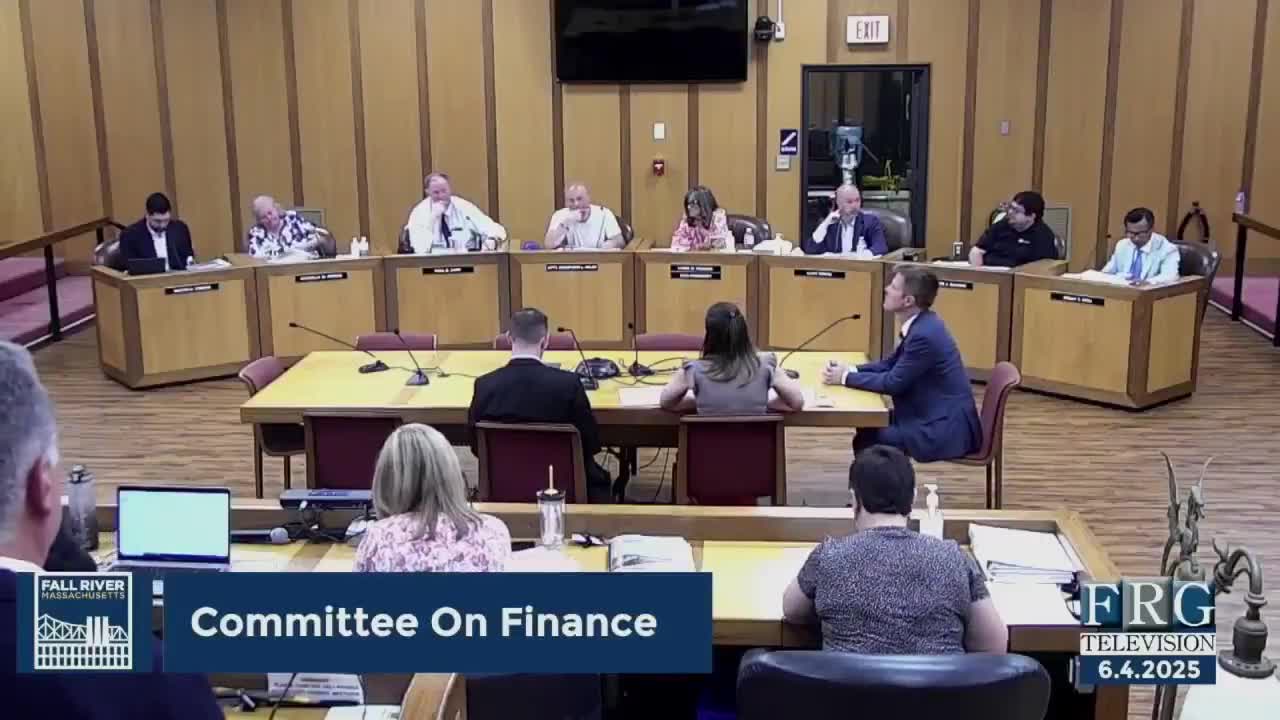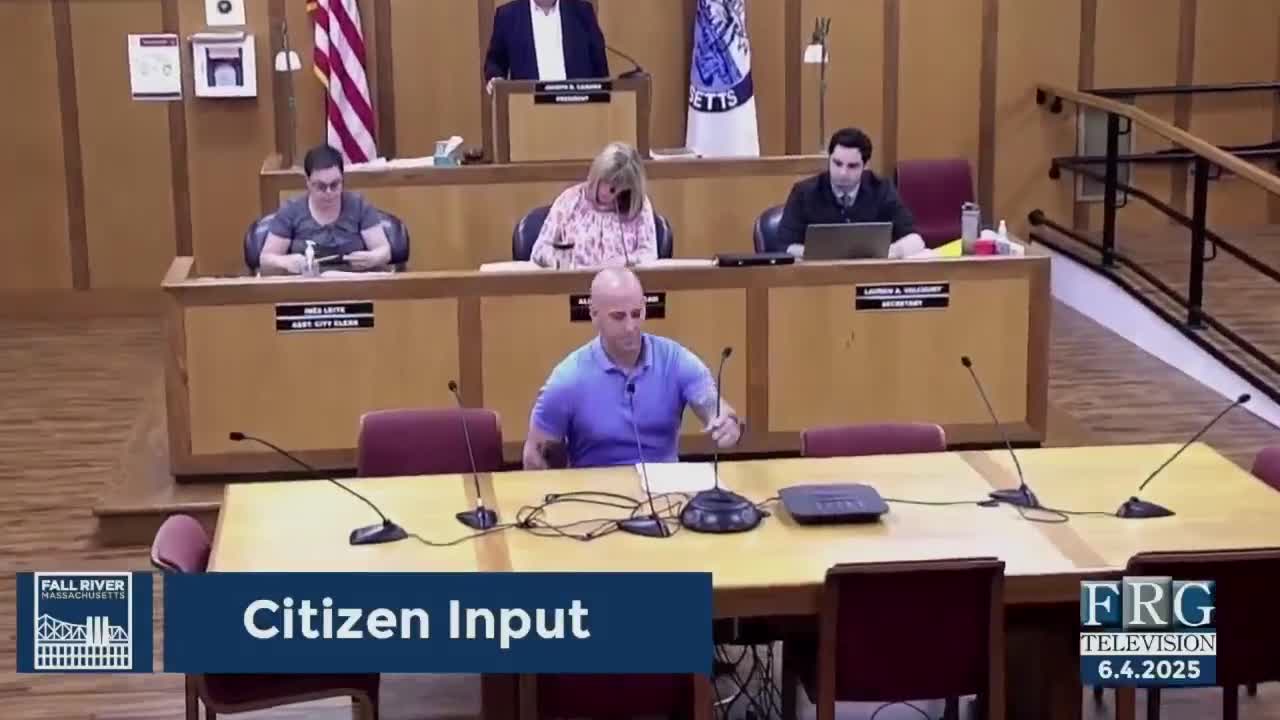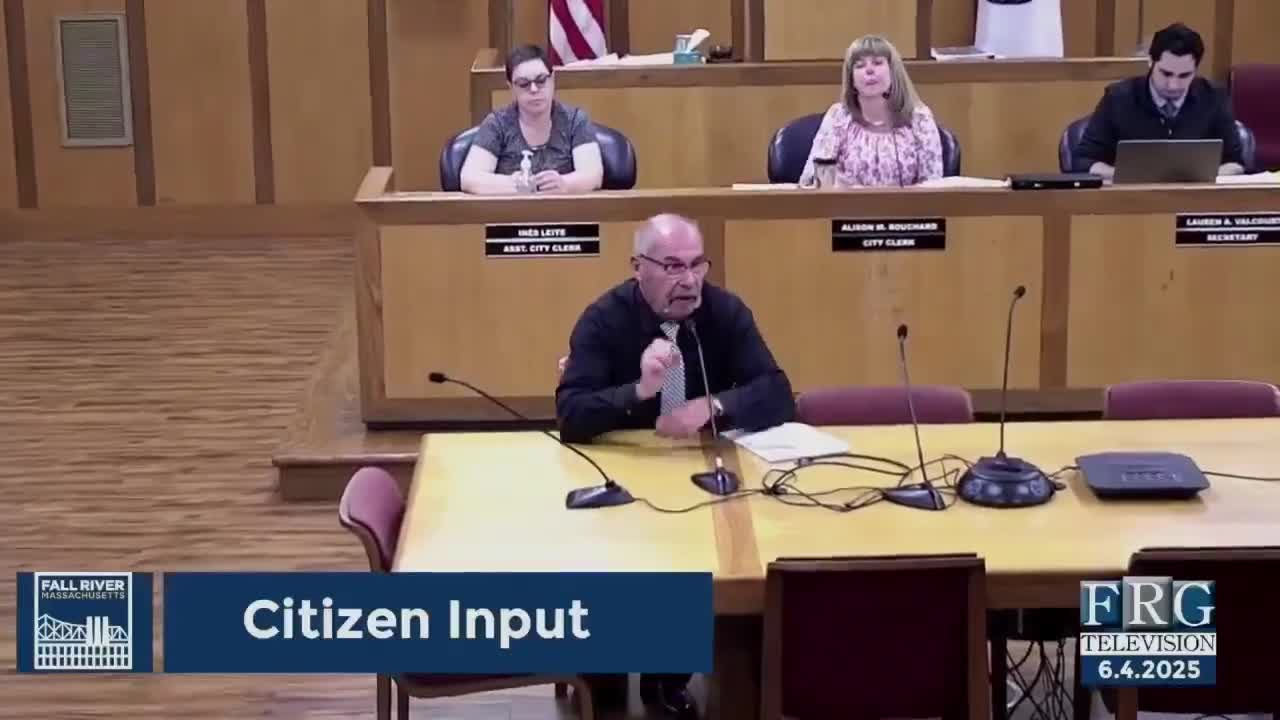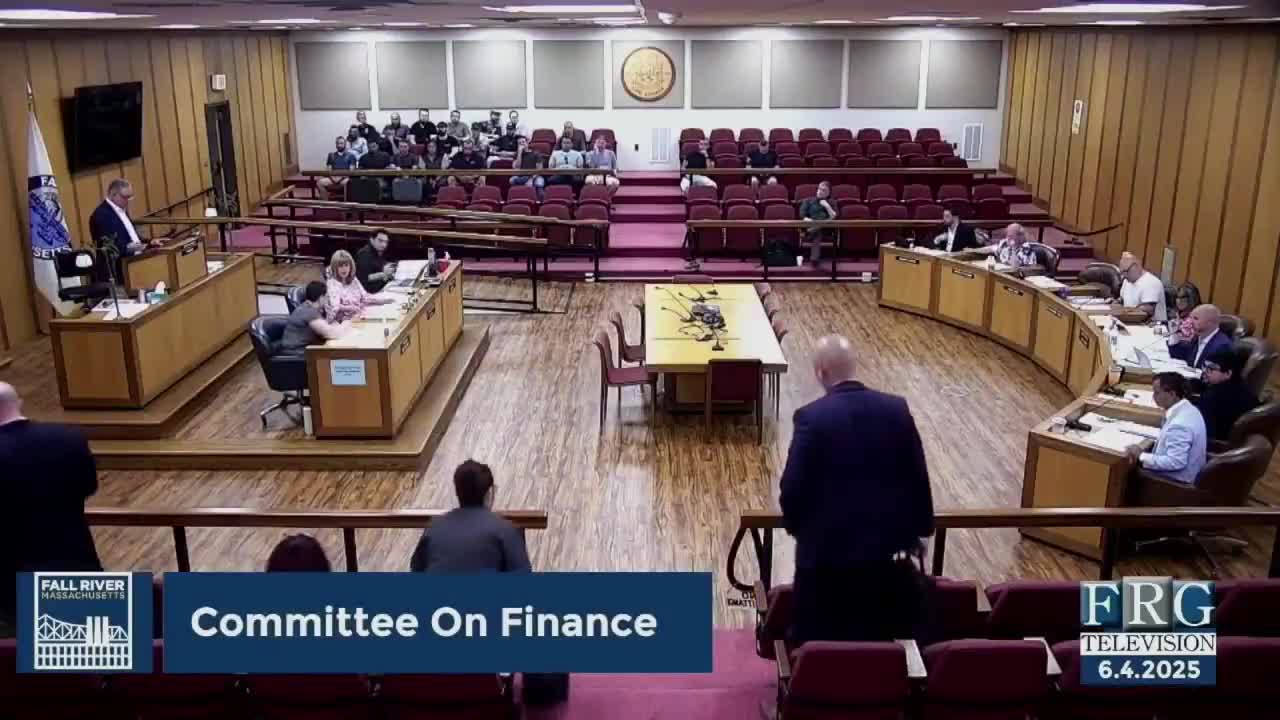Article not found
This article is no longer available. But don't worry—we've gathered other articles that discuss the same topic.

Council committee and full council vote to reject Fall River FY26 municipal budget; members cite one‑time funding and structural concerns

Resident and councilors press for investigation into DCM incinerator work tied to APA funding at 10 Lewiston St.

Retired Fall River fire chief urges council to press state to use cannabis revenue for station repairs

